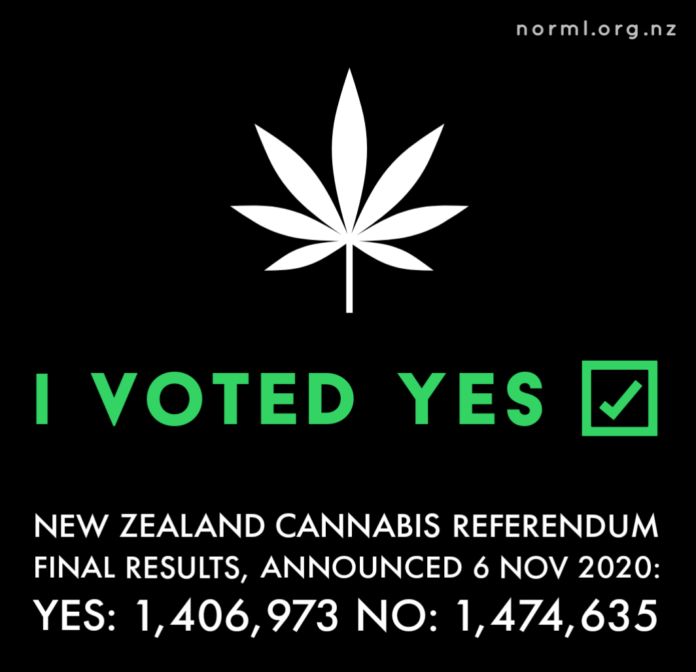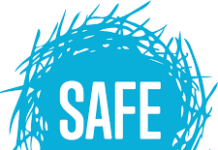This weekend the Labour Party held their annual conference. It’s also one year since the announcement of the results of their cannabis referendum, in which a forgotten 48 per cent of voters supported full commercial legalisation.
A lot has happened since then – mostly related to Covid – but there has been almost no progress on cannabis law reform. In many respects it has gone backwards. What happened to the needs and wishes of the 1,406,973 Kiwis who voted Yes – have they really been entirely forgotten?
It seems Andrew Little, who ran the referendum and now runs the Ministry of Health – has been true to his word. He had pledged cannabis reform would be off the agenda if No won.
But as I’ve previously written here, there are many things the government could do to soften the current approach and recognise the widespread consensus for treating cannabis use as a health issue, not a crime. So, what has happened since last year’s vote?
Cannabis arrests have declined – but inequities remain.
While the law didn’t change, police heeded the message anyway. Most politicians don’t want to do anything about it, but Maori remain more likely to be arrested and prosecuted for the same thing. There are also widespread regional differences, with Aucklanders up to ten times more likely to be arrested than Southlanders. Police discretion can be a wonderful thing, but it has clearly failed here. Police need clear guidance and policy statements of what is expected – like the tolerance for going a few k’s over the speed limit – rather than leaving it to the judgement of individual officers.
The Law Commission called for mandatory warnings, not police discretion. If history has taught us anything, it is that law enforcement needs clear bounds and if there is a policy vacuum, they will fill it with arrests. Rather than abdicating responsibility and leaving it to individual officers to decide, Health Minister Andrew Williams and Police Minister Poto Williams should declare what they expect of police and the public, in very specific terms. For example, the presumptions of supply for cannabis in the existing law are possession of up to 28 grams and growing up to 10 plants – so tell police to give warnings for amounts below that.
Tax revenue foregone, and public health risks.
The US state of Illinois, which legalised cannabis last year along similar lines as NZ’s referendum, just raked up US$1 billion in sales so far in 2021. Cannabis brings in more tax revenue than alcohol. They are using it for social equity provisions, helping those most impacted by previous policies, funding street violence prevention programs, and wiping historic cannabis convictions.
Meanwhile the illicit market in Aotearoa has continued unabated despite the No vote and seems to not have been impacted by Covid lockdowns. Keeping cannabis illicit may even have contributed to some Covid spread, as many transactions still happen face to face, and providers who don’t follow rules are to be expected in illicit markets. From a public health perspective, decriminalisation of drugs should be considered as part of the response to Covid. At the very least, a public statement that Police would not pursue delivery services or providers operating online would be helpful here.
Medicinal cannabis remains expensive and out of reach.
The strict pharmaceutical approach of our medicinal scheme was based on a presumption of the referendum passing. As it was being developed everyone thought Yes would pass, including officials that I met. Patients would be able to buy herbal flowers from cannabis stores, they said, so there would be no need to have a herbal pathway for doctors to prescribe. Patients would also be able to grow their own, like anyone else aged over 18, and Green Fairies could share their wares like anyone else, so they didn’t need protection. But of course, none of that happened. Instead, we are left with a Big Pharma-loving scheme that has no place for herbalists, caregivers, Green Fairies, old school growers, hemp farmers, or anyone who doesn’t have a share market listing or the backing of a billionaire.
Recent weeks have seen the removal of most CBD products from the NZ market, the refusal of Andrew Little to extend the transition arrangementsthat allowed continued patient access, the rejection of an amnesty by Mr Little, Medsafe threatening doctors who import medicinal cannabis products for their patients, a third NZX listing of a cannabis company (this time Green Fern Industries), the approval of NZ’s first “local” medicinal cannabis products (imported CBD oil re-bottled by Helius with the $48 million bankrolled by their US-Kiwi billionaire investor, Guy Haddleton, to compete with the imported CBD made by Tilray, owned by the Canadian-Kiwi billionaire Peter Theil), and the announcement by Agriculture Minister Damien O’Connor of a $760,000 grant to foreign-owned Greenlab, which operates from a Lincoln University lab, to study NZ cannabis genetics and work out how to grow them best (GreenLab have promised to share the results of this taxpayer-funded study, but it is unclear if this is a requirement of the taxpayer funding).
There is very little happening here that directly benefits patients. It pains me to talk with colleagues in Australia and Columbia, as I did this week, and discover that Australian patients have access to hundreds of products including dozens of strains of flowers. We don’t. Australian suppliers can import crude extracts from Columbia then refine them in Australia, making products cheaper than would otherwise be the case. We can’t do that here. Australian pharmacies can do compounding, which may involve taking bulk sacks of flower, or drums of oil and selling by the gram to patients – cutting out middlemen and providing what patients what. New Zealand pharmacies can’t do that.
The Government should apply the Commerce Commission’s thinking around supermarkets to the medicinal cannabis industry. Current rules are favouring Big Pharma operations and causing similar problems as the supermarket duopoly: higher prices, reduced choice, our best produce going offshore, massive barriers to entry, using market dominance to stifle competition. I’ve written in more detail about that here with five changes in this area that could make a huge difference: let patients and caregivers import prescriptions that cannot be filled here, or let them grow by extending the palliative care defence to cultivation; revise the ludicrous product quality standards that are the toughest in the world (preventing access and raising prices); break up the large verticals by stopping them from both growing and manufacturing; allow pharmacies to compound bulk supplies like they can in Australia, the UK and Germany; and bring back the herbal pathway that was originally proposed for making and prescribing herbal cannabis products.
Access to medicinal cannabis remains an equity issue – it is limited to those who can afford it. Access to participating in the industry and enjoying any economic benefits is also an equity issue – it is limited to those with a share market listing or billionaire in their pocket.
New Zealand voted No by the narrowest of margins. You can be sure that if the shoe was on the other foot – if Yes had squeaked in by a tiny sliver – then that Cannabis Legalisation and Control Bill would have been watered down to take account of such a narrow victory. Just such a lens should be applied to the continued prohibition of cannabis, the effects of which are not experienced evenly.
—
Chris Fowlie is the president of the National Organisation for the Reform of Marijuana Laws NZ Inc; developer of the CHOISE model for cannabis social equity; CEO of Zeacann Limited, a cannabis science company; co-founder of the New Zealand Medical Cannabis Council; co-founder of The Hempstore Aotearoa; resident expert for Marijuana Media on 95bFM; cannabis blogger for The Daily Blog, and court-recognised independent expert witness for cannabis. The opinions expressed here are his own.





Great comments Chris…would have been nice for people easy access to cannabis during the lockdowns
Opps, again…to have easy access to cannabis during the lockdowns
This government lied about medical cannabis and how it would available to all as a home grown industry . Duncan Webb in Chch said it was sorted no matter what the result of the referendum was.
I am afraid there is a long list of broken promises and lack of transparency and not listening to the voters . Labour seem to be losing grip,of their one ace which was their handling of covid and decisions may be made to appease those that make the most noise which could be to the detriment of many.
Interesting stats on Illinois. But NZ has sat so long that it has mould on it. Perhaps if we don’t do anything the matter will go away.
Sleight of hand, that’s our specialty. Look as if you are doing something, and have a nice tidy desk when unexpected lurkers call or lobbyists.
Well at least much of the black market profits are going to areas and families without access to other opportunities.
Cannabis is highly allergenic [think red puffy eyes and sniffles]and not that great anyhows, plenty of better things to occupy yourself with.
Should only be used ritualistically, rather than recreationally. And as for medpot, proper diet and less stress offers better results for most patients.
You obviously haven’t experienced the very real pain of osteoarthritis.
Oh I have experienced great pain all right, and much of it has come from using cannabis inappropriately
Pain is often a sign from god you are doing something wrong that will lead to death. Its there to help you many cases
Masking these ‘intelligently designed’ safety signals is not wise…
Best laugh I’ve had in ages.
Pain has NOTHING to do with God!. My arthritis is inherited. All my siblings too and at least 50% of my cousins. Ingested THC in the right amounts along with cannabis balm works magic! No prescribed anti inflammatory does as good a job and all prescribed arthritis drugs cause serious major organ damage. So you and your God of worthless narrow judgement calls can clear off! ignorant fool!
Absolutely. And many people who need medication for serious issues eg Parkinsons are being held to ransom by Big Pharma. My only fear, if cannabis had been legalised, was just that.
So surprising the ‘no’ response to the referendum. The numpties were allowed to continue on in their ‘thoughts’. Which is to say there wasn’t the force of the pro-vaccination campaign.
No one can take the marijuana laws seriously now. Brings law into ridicule.
C-Sativa, specifically, must remain illegal and its possession must be punishable because to smoke, or otherwise [it] may allow the consumer to realise [that] they are regarded as commodities, not human beings.
The question, that would then need to be considered, is, just who are ‘They’ ?
It’s not me, and I doubt it’s any of you, so who are ‘They’ ? Who the fuck are the ‘They’s ‘ ?
‘They’ need a good spanking if you ask me? ’They’ can just fuck right off!
And yet…! If I, while using myself as a perspective of the perp’ smoking, or otherwise ingesting c-sativa I’ll have MY taxes-paid -for Police come around and bust my harmless, joyous arse. For the dreaded ‘They’s’! And I bet they pay fuck all in taxes!
Ok. I’m freaking out right now!
Could it be, that ‘capitalism’ is really just fascism with a cheap paint job?
Think about it….?
I have said this before and I will say it again. A lot can be achieved if youth under the age of 24 years are treated differently in courts than the adult system. Anyone under 24 should not be allowed to go to prison or be held in remand in an adult prison. There should be special rehabilitation places for offenders who are under 24 years old, run by qualified people not the usual neoliberal profiteering off victims or woke Harry Tam, diversity, drug rehab while being a leader of gangs that are arguably responsible for creating the maori victims in the first place!
More than a third of the 500-odd people a month charged for drug use/possession are Māori, but police say ethnicity is not a factor in whether police charge drug users.
https://www.nzherald.co.nz/nz/politics/drug-prosecutions-police-say-prior-offending-not-race-main-factor-in-decision-to-charge/VA6YIT4EMPCB2JJILTJIWWDHUE/
They also have to stop the neoliberal Ponzi of allowing children under 21 to come to NZ without their parents, via people traffickers and visas to fuel the neoliberal education for profit model while selling NZ low jobs, low skills residency as the big prize.
Foreign students should be over 21 before they are allowed into NZ to study and they should not be allowed to work.
Foreign children should not be able to be shuttled around to get free education here, while their parents are working overseas or living in NZ with a low paid job that puts stress on the family.
Isn’t working out.
Auckland mall terrorist forged medical documents, boasted about duping immigration officials
https://www.nzherald.co.nz/nz/auckland-mall-terrorist-forged-medical-documents-boasted-about-duping-immigration-officials/P4TXIN7YOI2OENGEKTWRCV2AD4/
Jail over plot to steal friend’s car
https://www.odt.co.nz/news/dunedin/crime/jail-over-plot-steal-friends-car
Lovepreet Brar was a migrant who scrapped his way from a one year diploma to New Zealand residency, before becoming an international bhangra hip hop star.
https://thespinoff.co.nz/music/02-07-2019/the-extraordinary-story-of-love-brar-the-fraudster-who-became-a-pop-star/
Former doctor jailed for at least 19 years for murder of Amber-Rose Rush
https://www.rnz.co.nz/news/national/411126/former-doctor-jailed-for-at-least-19-years-for-murder-of-amber-rose-rush
There seems to be an escalation of this situation, and problems keeps increasing. NZ is becoming a drop zone for people who are not coping well.
Australia deported criminally insane Kiwis without telling New Zealand authorities
https://www.stuff.co.nz/national/crime/75884164/australia-deported-criminally-insane-kiwis-without-telling-new-zealand-authorities
Apparently children under the age of five made up 12 percent of homicide victims. Recently a migrant doctor, allegedly murdered her three children within weeks of coming to NZ.
Instead of trying to stop all the problems the government is letting relentless lobbying paid for by exploiter interests, dictate their migrant policy. , not what is best for society, existing youth growing up in NZ and existing residents.
Too many victims in all of this.
Drugs are for Losers bro’s
wake up and go straight edge
So is that noisy angry music….
As one who suffers from a rare and debilitating degenerative disease, Ehlers Danlos Syndrome, for which Cannabis is an excellent treatment, I have to tell you that your’s is an uneducated opinion shared with other’s of your ilk who drink alcohol and take anything off the pharmacy shelf to pop into your mouth.
The full legal market suggested by the referendum was a step to far. A lot of smokers voted no because they didnt want it treated like alcohol with shops and cafes everywhere. They also figured out pretty quickly that it wasn’t going to be small producers with niche/boutique operations, it would be “big Cannabis”
I fully believe that the people pushing for legalization were played by the govt. They (officials) knew that people would balk at a full on legal market. They offered much more than the public would accept and the Chris’s and Cloe’s of the pro lobby got so excited they didn’t see it the sting.
Comments are closed.